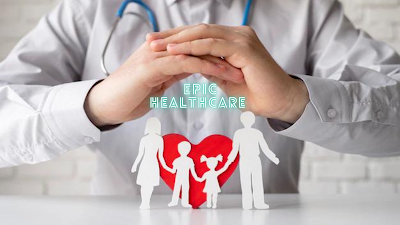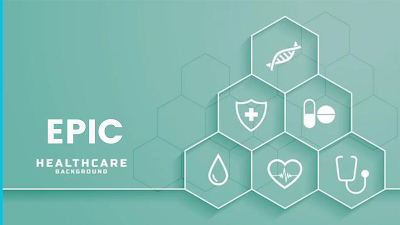Epic is revolutionizing the healthcare industry with its innovative solutions and empowering providers to transform their healthcare practices. With its cutting-edge technology and comprehensive platform, Epic is reshaping the way healthcare is delivered and improving patient outcomes. Discover how Epic can help streamline workflows, enhance communication, and improve the overall quality of care in your healthcare practice.
Introduction to Epic and its impact on healthcare.
Epic is a leading provider of healthcare software solutions that is making a significant impact on the industry. With its comprehensive platform and cutting-edge technology, Epic is empowering healthcare providers to transform their practices and improve patient outcomes. By streamlining workflows, enhancing communication, and improving the overall quality of care, Epic is reshaping the way healthcare is delivered. In this article, we will explore the various ways in which Epic is revolutionizing the healthcare industry and how it can benefit your healthcare practice.
Key features and benefits of Epic for healthcare providers.
Epic offers a wide range of features and benefits that can greatly benefit healthcare providers. One key feature is its comprehensive electronic health record (EHR) system, which allows for seamless integration of patient data and streamlined workflows. This not only improves efficiency but also enhances patient safety by reducing the risk of errors and ensuring accurate and up-to-date information.
Another important benefit of Epic is its interoperability, which allows for seamless communication and collaboration between different healthcare providers and systems. This means that healthcare professionals can easily access and share patient information, leading to better coordination of care and improved patient outcomes.
Epic also offers advanced analytics and reporting capabilities, allowing healthcare providers to gain valuable insights into their practice and patient population. This data-driven approach can help identify trends, improve decision-making, and optimize resource allocation.
Furthermore, Epic is constantly innovating and staying ahead of the curve when it comes to technology and industry trends. With regular updates and enhancements, healthcare providers can be confident that they are using the latest tools and solutions to deliver high-quality care.
Overall, Epic offers a comprehensive and innovative solution for healthcare providers, empowering them to transform their practices and deliver better patient care.
Case studies showcasing successful implementation of Epic.
Many healthcare providers have successfully implemented Epic and experienced significant improvements in their practice. One case study involves a large hospital system that implemented Epic's EHR system across all of its facilities. This resulted in improved efficiency and communication, as well as a reduction in medication errors and adverse events. Another case study involves a small clinic that implemented Epic's interoperability features, allowing for seamless communication with other healthcare providers in the community. This led to better coordination of care and improved patient outcomes. These case studies highlight the transformative power of Epic in healthcare and demonstrate its ability to drive positive change in provider organizations.
How Epic improves patient care and streamlines operations.
Epic is a game-changer for healthcare providers, as it offers a wide range of features and solutions that improve patient care and streamline operations. One key benefit of Epic is its electronic health record (EHR) system, which allows for easy access to patient information, reducing the risk of errors and improving communication between healthcare providers. With Epic, healthcare providers can also implement interoperability features, enabling seamless communication with other providers in the community. This leads to better coordination of care and improved patient outcomes. Additionally, Epic offers tools for scheduling, billing, and reporting, making administrative tasks more efficient and allowing providers to focus more on patient care. Overall, Epic empowers providers to deliver high-quality care while optimizing their operations.
Steps to integrate Epic into your healthcare practice.
Integrating Epic into your healthcare practice can be a transformative process that improves patient care and streamlines operations. Here are some steps to help you successfully implement Epic:
1. Assess your needs: Before integrating Epic, assess your practice's specific needs and goals. Determine which features and solutions will benefit your practice the most.
2. Plan and prepare: Develop a comprehensive implementation plan that outlines timelines, resources, and responsibilities. Ensure that your staff is trained and prepared for the transition.
3. Customize Epic: Work with Epic consultants to customize the system to meet your practice's unique requirements. This may include configuring workflows, templates, and interfaces.
4. Data migration: Transfer your existing patient data into the Epic system. This process requires careful planning and attention to detail to ensure accuracy and continuity of care.
5. Test and optimize: Conduct thorough testing of the Epic system to identify any issues or areas for improvement. Make necessary adjustments to optimize the system's performance.
6. Train your staff: Provide comprehensive training to your staff on how to effectively use the Epic system. This will ensure that everyone is comfortable and proficient in using the new technology.
7. Go live: Launch the Epic system in your practice. Monitor its performance closely and address any issues that arise promptly.
8. Continuous improvement: Continuously evaluate and improve your use of Epic. Regularly assess the system's effectiveness and seek feedback from staff and patients to identify areas for enhancement.
By following these steps, you can successfully integrate Epic into your healthcare practice and unlock its full potential to improve patient care and streamline operations.





Comments
Post a Comment